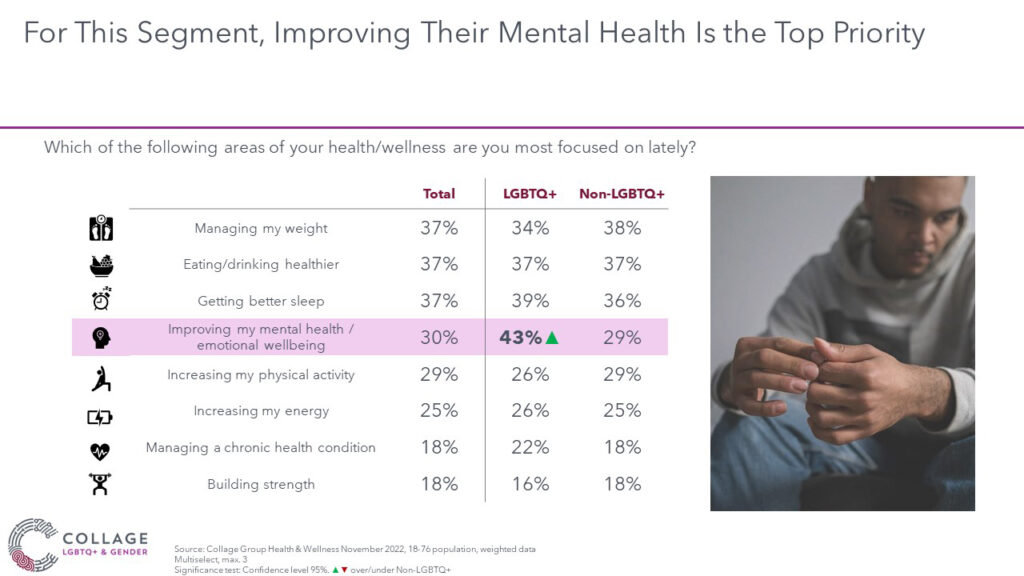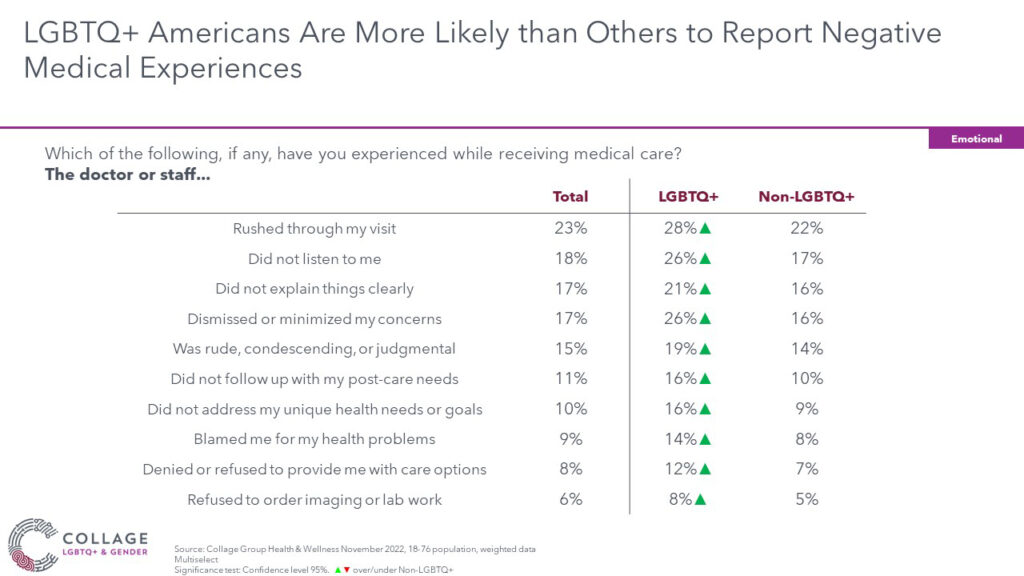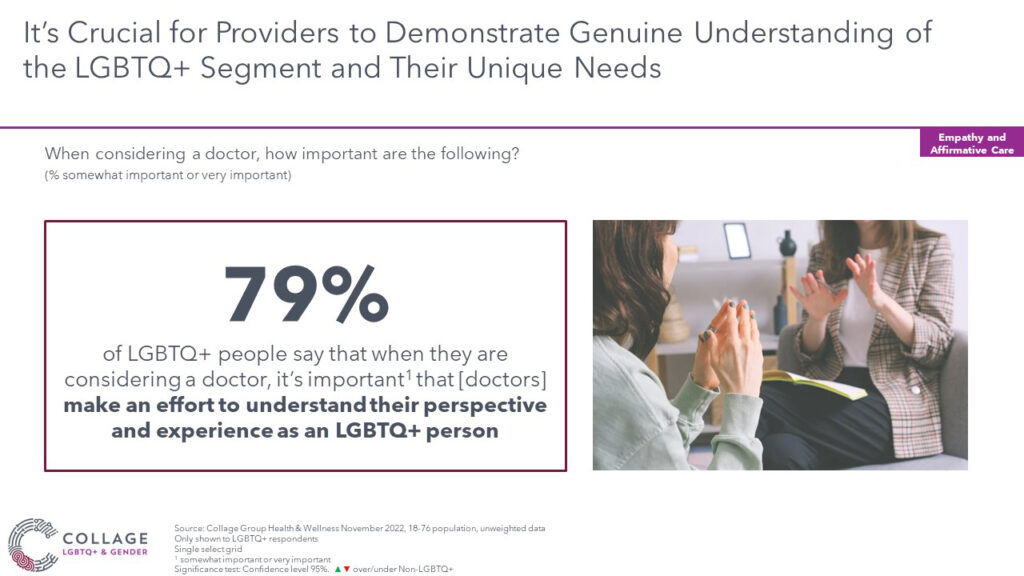Engage LGBTQ+ Health: Medications, Insurance, Provider Preferences & More

Health and wellness are major aspects of consumers’ daily lives. Americans spend a significant amount of time — and money — tending to their health. All brands, both within and outside of the health and wellness space, must understand consumers’ attitudes and behaviors in this key area of their lives.
Read on and fill out the form for an excerpt from our Engage LGBTQ+ Health presentation.
Collage Group’s 2023 LGBTQ+ Health and Wellness Pulse Check provides insights across sexuality on:
- Perceptions of health and wellness: Definitions, satisfaction, health habits, caregiving, and more.
- Barriers to achieving health: Pain points, negative doctor experiences, and reasons for delaying or avoiding care.
- Support and improvements that will help move the needle towards achieving health: Sources of trust, the role of technology, and the community.
Key Finding: Perceptions of Health
LGBTQ+ people feel that their mental health requires urgent action.

Context
Continued discrimination and anti-LGBTQ+ violence exacerbate mental health issues. This is especially challenging for LGBTQ+ youth as they’ve yet to discover their full, adult identities.
Action Steps
- Openly address mental health challenges specific to the LGBTQ+ experience.
- Connect the community with easy-to-access mental health resources. Create a safe space for the LGBTQ+ community and address issues specific to them.
Key Finding: Barriers
LGBTQ+ patients’ encounters with healthcare providers are riddled with negative experiences that further intensify preexisting emotional barriers to care.

Context
Anti-LGBTQ+ discrimination by medical providers is, unfortunately, common. The fear of mistreatment may compel the members of the community to withhold relevant information from doctors they do not trust.
Action Steps
- Normalize and advertise existing non-discrimination policies.
- Connect patients to advocacy services to help address potential concerns and coordinate care.
Key Finding: Support & Improvements
LGBTQ+ people highly value doctors who understand and validate their unique perspectives, challenges, and experiences.

Context
Even providers who don’t discriminate against LGBTQ+ people might not fully understand their nuanced needs or be experienced in serving the community.
Action Steps
- Train your providers in the health challenges faced by this community to better equip them with knowledge and tools needed for providing affirmative care.